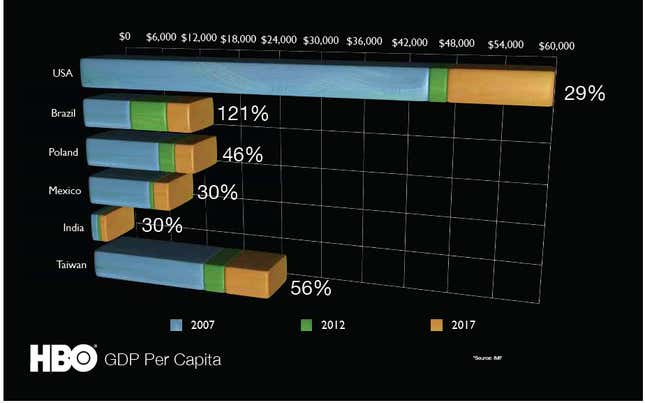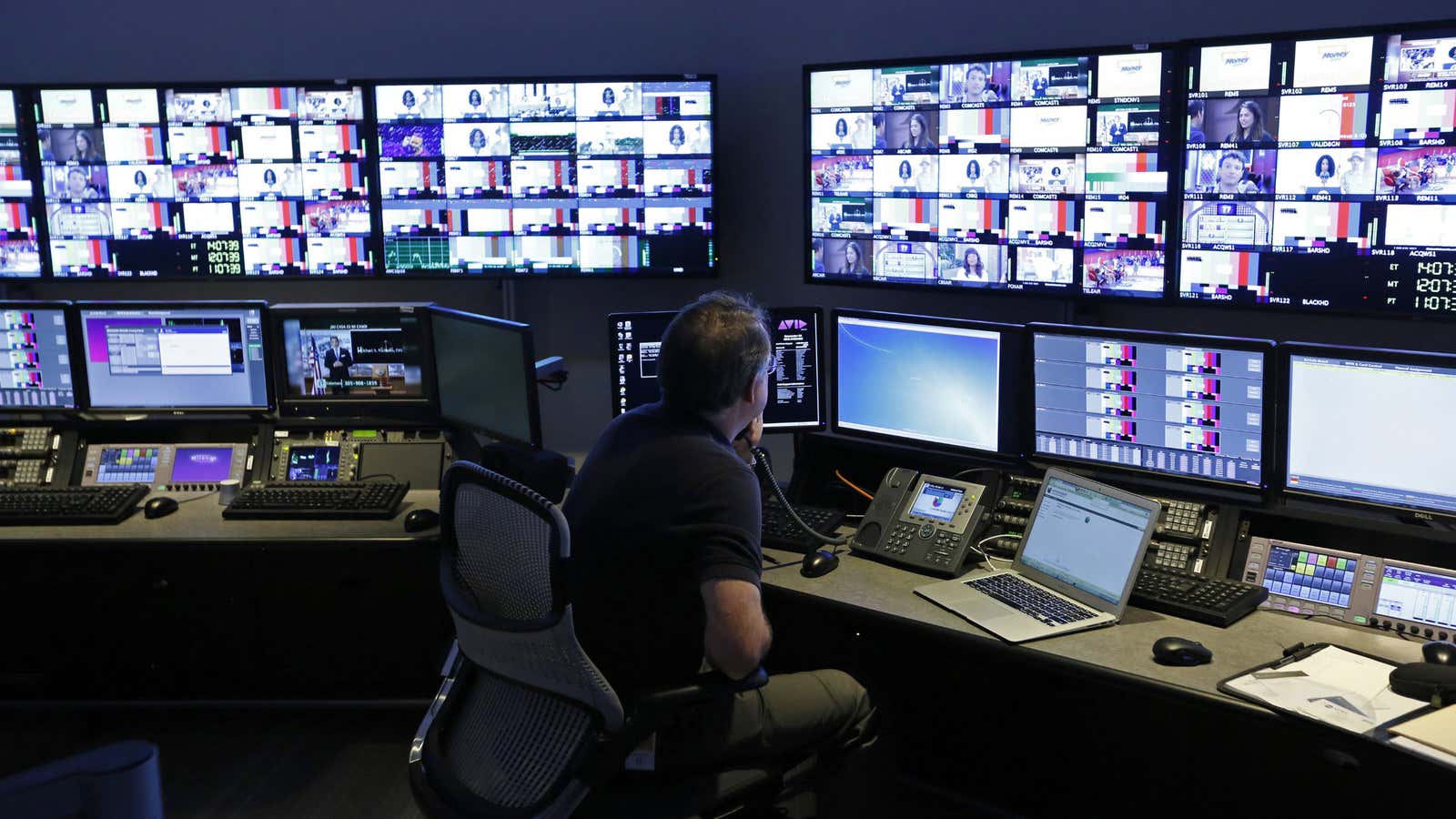Time Warner CEO Jeff Bewkes doth protest too much. At an industry conference hosted by UBS in New York on Dec. 9, the man in charge of the company that owns HBO attempted once again to distance the premium channel from Netflix. From The Wrap:
“These are complimentary services. The viewing of HBO in Netflix homes is higher than your average home,” Bewkes said, adding interest in Netflix is also higher in homes that subscribe to HBO.
Hm, well, we disagree. And here’s why:
They compete for content
There are no fewer than 12 mentions of HBO in Netflix’s “long term view,” which its investor relations department has provided for potential shareholders in the company. Including this doozy of a quote:
The network that we think is likely to be our biggest long-term competitor-for-content is HBO. In the USA for example, HBO recently won long-term exclusive domestic movie output deals with Universal and Fox. HBO bids against us on many original content projects though is not currently a bidder against us for prior-season television from other networks. HBO has global reach and a strengthening technology capacity.
In short, HBO and Netflix compete fiercely for content, both original and from other film studios. Netflix outbid HBO for the hit show House of Cards, but HBO has outbid Netflix for other content, such as exclusive distribution rights for Universal Pictures films on TV, mobile and tablets in the US.
They compete for subscribers
Last quarter, Netflix surpassed HBO in US paying subscribers. Sure, Netflix is best known as an online streaming product, while HBO content has traditionally been accessed via cable. But now, even the way the content from these two outlets is being consumed is converging. HBO’s streaming product, HBO Go, is widely considered a success, and despite Bewkes’ protestations, there is rampant speculation that it will eventually be sold as a standalone product. Meanwhile, Netflix might soon be available through your cable set top-box.
They compete for international viewers
Both companies are aggressively expanding their presences outside of the US amid signs the domestic market has reached its saturation point. So far, the two countries’ services overlap in Scandinavia, the Netherlands and Latin America.
Netflix launched in Canada in September 2010, Latin America in September 2011, the UK and Ireland in January 2012, Nordic countries (Denmark, Finland, Norway, Sweden) in October 2012, and Netherlands in September of this year.
HBO, meanwhile, has focused its expansion on faster growing emerging markets like Latin America, central Europe, Asia and India. There are expected to be 80 million subscribers to HBO branded networks outside the US by the end of this year.

Just about the only way the two services are truly different is the way they’re paid for—Netflix through a flat $8 a month subscription, while HBO access varies depending on your cable company. If at some point consumers get their way and convince HBO to offer its services a la carte, this could change too. Then HBO’s roundabout distancing strategy would be a lost cause.




